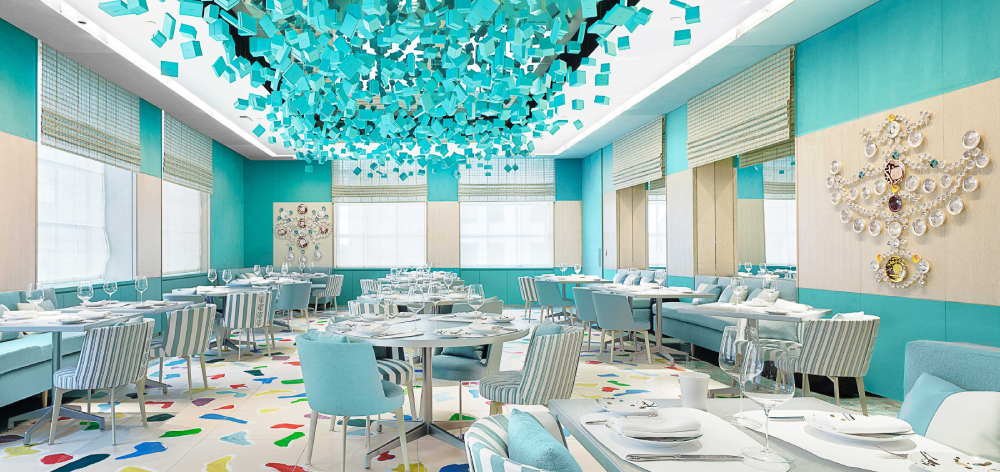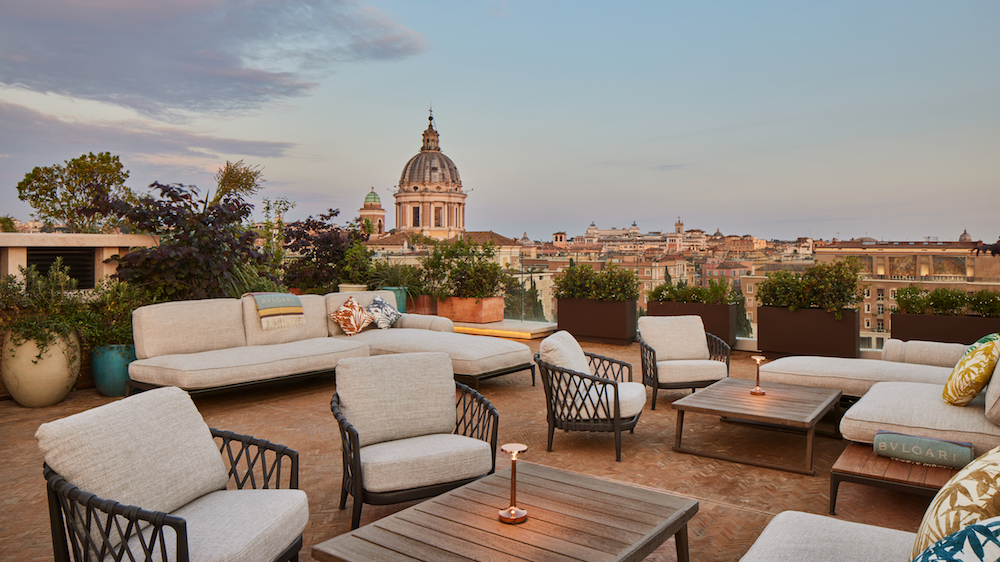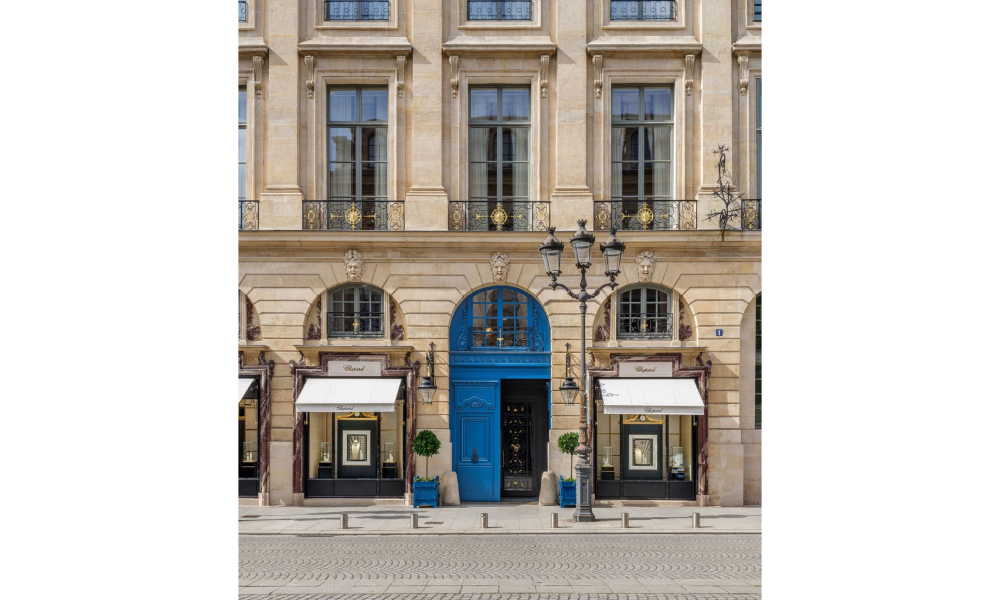The expansion of global jewellery brands into the hospitality sector reflects a strategic convergence of luxury lifestyle offerings, where personalised experiences and opulent settings cater to the evolving desires of discerning consumers seeking a holistic and immersive brand experience. Shilpa Dhamija finds out.
Travel levels are expected to hit a new high in 2024, surpassing those of 2019 for the first time since the pandemic hit the global economy, according to a recently released Mckinsey report. As overseas travel rebounds, so will the revival of international shoppers, encouraging the luxury sector including global jewellery brands to elevate customer experiences with a novel taste of exclusivity.
This year, Chopard has opened doors to its first ever luxury accommodation with 15 suites and rooms built on 6 floors atop its boutique at Paris’s popular luxury shopping square Place Vendôme. Instead of naming the mini-hotel after the brand, Chopard chose to name it after the address of the boutique – 1 Place Vendôme.
Rooms sized between 30 and 130 square-metres can be booked at €1300 to €5500 per night, while an apartment with 2 bedrooms starts at €14000, depending on the season.
The hotel aimed at Chopard’s ultra wealthy customers also offers wellness and lounge areas as well as butler and concierge services. Decorated with Chagall and Warhol paintings, a mosaic with peacocks and hand embroidered artwork inspired from 17th century drawings, the mini-hotel is designed by interior designer Pierre-Yves Rochon to please purveyors of quiet and subtle luxury.
Place Vendome located in the heart of Paris is also home to some of the finest and biggest boutiques of iconic global jewellery brands such as Cartier, Boucheron and Chaumet and many other luxury fashion and watch brands. Many of whom hosted a string of popup showcases at a variety of luxury properties around the world in 2023.
A hospitality concept made popular by the highly acclaimed Audrey Hepburn starrer 1960s movie ‘Breakfast at Tiffany’s came to life earlier this year at the refurbished Tiffany & Co’s flagship store on New York’s 5th avenue, which now actually offers breakfast with the classy Tiffany hospitality.

Powder blue walls and a ceiling decked with hanging Tiffany blue boxes, the restaurant offers signature culinary experiences for elevated daytime dining, curated by the well-known French chef and restaurateur Daniel Boulud.
LVMH’s Bulgari was one of the first world renowned jewellery brands to venture into the hospitality sector, as early as 2004. This year the Roman brand opened its 9th luxury hotel, and the first one in Rome that boasts 114 rooms & suites. The hotel was inaugurated by Bulgari brand ambassadors Priyanka Chopra Jonas and Zendaya. Bulgari’s hospitality network is spread across the world’s key metro cities such as Milan, London, Paris, Tokyo, Dubai, Shanghai Beijing and Bali. Bulgari plans to open three more hotels in Miami, Los Angeles and Maldives by 2026.
How does hospitality elevate the luxury quotient for jewellery brands?
According to Silvio Ursini, executive vice president, Bulgari group, the DNA of Bulgari Hotels & Resorts is focused on offering the hospitality of a jeweller. “Very personalised and warm although distinguished and sophisticated,” he told Solitaire International, adding that for Bulgari, the luxury hotel business has become the innovative yet legitimate way of building awareness about the brand while dedicating much more attention to a wide clientele with a new and complete lifestyle experience. All Bulgari hotels are designed with inspiration from Italian architecture and some also host Bulgari’s jewellery and watch boutiques.

Jewellery brands are vying to make the most of a renewed demand that has surfaced after the pandemic induced slowdown. Expanding their luxury outreach through hospitality is one way of retaining the interest of their loyal customers.
According to the Mckinsey report, hard luxury goods – jewellery and watches, leather goods are emerging as key categories in discretionary spending as consumers seek to invest in pieces that will maintain or increase in value over time.
Chinese consumers who are among the leading demographics for luxury travel retail are expected to resume travel to overseas destinations with a bang and reach between 70% and 100% of pre-pandemic levels by the end of 2024. “As these shoppers return, there is a growing desire for brand experiences,” the report states, adding, “Overall, the key will be to keep pace with global customers, adapting to when, where and how they want to shop when on the road.”
Razorfish, a marketing agency, indicates that 40% of travellers are willing to spend half or more of their travel budget on a highly curated moment or experience.
While pop-ups have been part of the luxury world’s playbook for some time, brands are increasingly expanding these experiences into adjacent categories such as food, hospitality, and wellness to capture the maximum interest and attention of their potential customers, globally.

